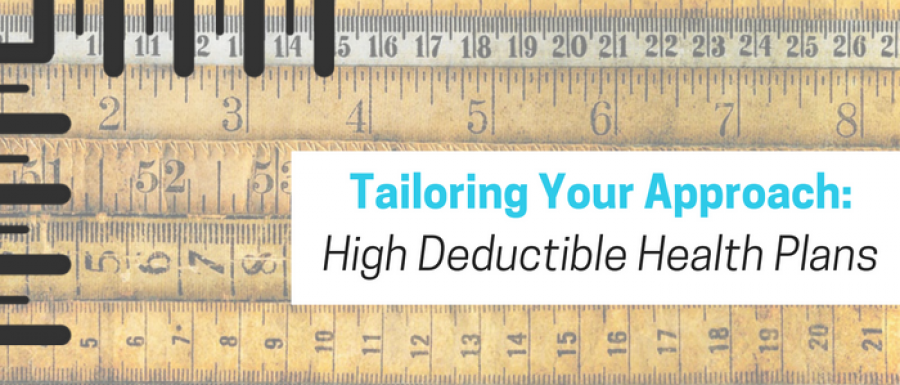
If you’re in the healthcare industry, chances are you’ll encounter more than a few patients who have a high-deductible health plan (HDHP). In fact, a recent Health Policy Brief published by HealthAffairs.org indicates, “In the individual market, almost 90 percent of enrollees in Affordable Care Act (ACA) Marketplaces are in a plan with a deductible above the amount that qualifies a plan as an HDHP.” With statistics like this, you’re certain to encounter more than a handful of HDHP patients who may or may not know how their healthcare plan truly works.
While day-to-day procedures are the same for all patients, it’s important to educate your staff about the difference between traditional PPOs and HMOs versus the newly-emerging options, including HDHPs. Not all plans are created equal, which means your staff’s approach to patients should be tailored to individuals and their unique plans, rather than assessing everyone as though they’re all the same.
It’s important to help HDHP patients understand how their healthcare plans work before they find themselves in payment situations they may not be able to fulfill, but it’s as equally important to address each situation with empathy. Your team is never going to know which patients have a full grasp of their plans and which people have no idea how an HDHP actually works, so empathy is your team’s best weapon in the line of revenue cycle management defense.
Some of your patients will absolutely understand how their healthcare plans work while others won’t have a clue. Train your staff to tread carefully when asking about patients’ ability to pay. By using empathy with your inquiries, you’ll learn more about your patients, and you’ll have a better understanding about any obstacles they face that could delay payment in the long run.
Here are some questions you should consider asking:
Did you receive your invoice?
This is a very soft and natural question that will allow your RCM team to troubleshoot very simple problems that could be the ultimate cause of payment delay. If the patient did not receive the invoice, make sure his or her address, email, and phone number are up-to-date in your system.
Your Guide To Finding The Right Teammate
Do you understand your invoice?
If the patient did not understand the invoice, this is the perfect opportunity for your staff to educate your patient about HDHP plans.
Do the billing and payment options make sense?
You want to ensure that your patients understand how they can pay when their invoices are due. This simple question allows staffers to delve deeper into any future payment problems that may occur. By asking patients if their payment options make sense, employees will have the ability to assess potential problems so they can offer remedies that could prevent disturbances in the revenue cycle.
Do you feel your billing and payment situations were handled appropriately?
Feedback is always a good thing, and while you can’t please every patient all the time, it’s important that your patients feel heard. You may learn a lot about your own deficiencies by allowing free-flowing communication and patient feedback.
Would you like to take care of your balance today?
Train your staff to use phrases like, “I would be happy to take care of that for you,” so your patients feel valued even when payment is being requested.
We’re interested in hearing your stories. If you’ve gotten creative and found ways to approach your HDHP patients with empathy, patience, and persistence and had successful results, we’d love to hear how you did it. Please share your tips and tricks with us!


